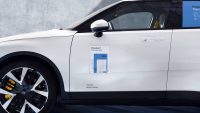A new wave of BMW models are to feature parts that have been made from recycled fishing nets, the German brand has announced.
In a first for the automotive industry, the upcoming models of the firm’s ‘Neue Klasse’ (new wave) will feature trim parts made of plastic whose raw material contains around 30 per cent recycled fishing nets and ropes.
The material is is to be proactively sourced at ports all around the world to ensure that it doesn’t end up being discarded in the sea.
Waste material from the maritime industry will be used to produce both interior and exterior trim with the resulting components having a carbon footprint approximately 25 per cent lower than their counterparts made from conventionally manufactured plastics.
The scheme is being rolled out in cooperation with the Danish company PLASTIX as BMW looks to do its bit to counteract ocean pollution.
Recycled nylon waste will form the basis for a synthetic yarn from which the floor mats in the BMW iX and the new BMW X1, for example, are made.
The material, known as ECONYL, is made from discarded fishing nets well as worn floor coverings and residual waste from plastics production.
The process works by separating fishing nets and ropes from other marine waste before they undergo an innovative process that produces plastic granules.
While recycled maritime plastic has so far only been used in the automotive industry in the form of fibres for new vehicle components, this recycled material is now also suitable for the injection moulding process for the first time.
The raw material for the components manufactured in this way can consist of around 30 per cent maritime plastic waste.
BMW says this creates additional application possibilities for recycled plastics. Overall, the group has set itself the target of increasing the proportion of secondary materials in the thermoplastics used in new vehicles from currently around 20 per cent to an average of 40 per cent by 2030.
The first cars featuring parts from the scheme are set to launch in 2025.



































